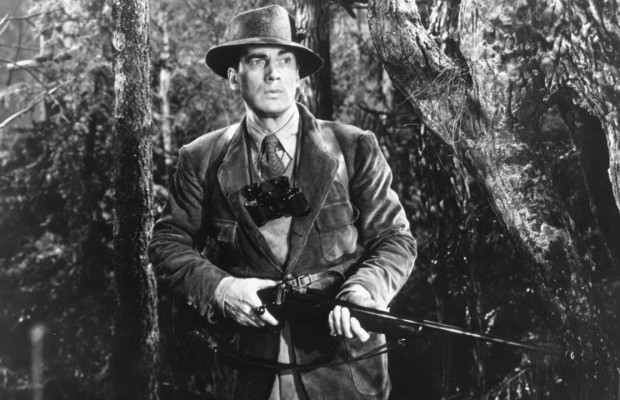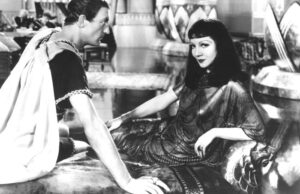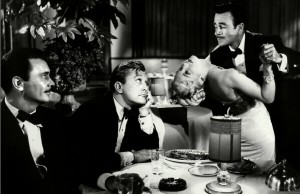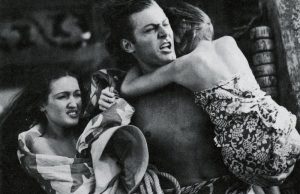Man Hunt (1941)

Toronto Film Society presented Man Hunt (1941) on Monday, March 7, 1977 in a double bill with The Dark Angel as part of the Season 29 Monday Evening Film Buff Series, Programme 8.
Production Company: 20th Century-Fox. Associate Producer: Kenneth Macgowan. Director: Fritz Lang. Script: Dudley Nichols, based on the novel, “Rogue Male”, by Geoffrey Household. Photography: Arthur Miller. Editor: Allen McNeil. Art Direction: Richard Day, Wiard B. Ihnen. Set Decoration: Thomas Little. Costumes: Travis Banton. Music: Alfred Newman.
Cast: Walter Pidgeon (Captain Alan Thorndike), Joan Bennett (Jerry), George Sanders (Major Quive-Smith), John Carradine (Mr. Jones), Roddy McDowall (Vaner), Ludwig Stossel (Doctor), Heather Thatcher (Lady Risborough), Frederic Worlock (Lord Risborough), Roger Imhoff (Captain Jensen), Holmes Herbert (Farnsworthy), Eily Malyon (Postmistress), Fredrik Vogeding (Ambassador), Herbert Evans (Reeves), Keith Hitchcock (Bobby), Lester Matthews (Major), Egon Brecher (Whiskers), Arno Frey (Police Lieutenant), Lucien Prival (Umbrella Man), Edgar Licho (Little Fat Man), John Rogers (Cockney), Otto Reichow, William Haade, Bob Stephenson (Sentries), Adolph Milar (Pigeon Man), Sven Borg (First Mate), Hans Joby (Tracker), Cyril Delevanti, Frank Benson (Cab Drivers), Douglas Gerrard (Policeman), Clifford Severn (Cockney Boy), Charles Bennett, Bobbie Hale (Coster-Mongers), Walter Bonn, Carl Ottmar (Harbor Police), Carl Ekberg (Hitler), Kurt Kreuger, Olaf Hytten (Secretaries), William Vaughan (Chief of Harbor Police), Virginia McDowall (Postmistress’s Daughter), Bruce Lester (Co-Pilot).
Lang’s next film was based on “Rogue Male”, Geoffrey Household’s novel about a British sportsman who sets out to stalk Hitler and soon, himself, becomes the hunted. This was much more Fritz Lang’s type of story, and at the time it was understood that Fox was allowing the director to make a more contemporary film because of his two successful Westerns…
Man Hunt is a tense and intriguing thriller that is both propaganda and exciting entertainment. Though the subject matter is distinctively and typically Lang’s, it is taken almost entirely from the original novel, which patently expresses the themes already associated with Lang. Here is an excellent example of a director who does not write his own stories or scripts, and yet maintains the personal touch by selecting the material to be adapted. It is significant that htis, his first war film, deals with a secret and silent struggle, not the overt one of John Wayne and Errol Flynn.
“Rogue Male” was published in 1939, and it never specifically identifies Germany, Hitler, and the Nazis. The film drops this pretence, since the only alternative was depicting a Ruritanian nation; besides, the political climate had altered in the intervening years. This gives the film an added topicality, but in exchange it reduces the book’s sense of the enemy as an anonymous “they”. Captain Thorndike (Walter Pidgeon) narrates the novel, telling his story entirely in retrospect and leaving himself nameless. Otherwise, the structure of the plot is the same in both works, with occasionally significant exceptions…Because he can be subjective about his motives, the book’s narrator articulates what Lang often can only suggest.
…this emphasises the propagandistic, anti-Nazi side of the film; considered an advantage at the time, the propaganda weakens the plot and motivation. “Rogue Male” reveals the man’s motives as entirely personal, not patriotic, and hints lightly about the ambiguity of vengeance and justice…Man Hunt, in contrast, does not question the rightness of Thorndike’s goal, method or basic urge; it merely suggests that he should be consciously aware of them. Five years earlier, Lang might have treated the violence discovered within a seemingly good man as something dangerous and undesirable. By emphasising topical propaganda, Lang reduces the slightly more complex novel.
At the same time, the changes that were made allow the film’s surface to be more suspenseful than that of the original. Household goes out of his way to play down the scenes of violence…The author, in this and other books, is forestry-oriented and loves to go into detail about methods of survival on the run. Lang altered this to stress his own interests, and added to it his considerable cinematic skills: a camera that moves about freely and often, and a soundtrack willing to forego background music and instead orchestrate, for atmosphere, the sounds of wind, barking dogs, and rustling leaves.
The inclusion of propaganda weakens Man Hunt, but the problem is less serious than it is in Hangmen Also Die! (1943) and this story’s approach to the war atmosphere is ideal for Lang. It is one which he will continue to use during the Forties, and which ties in with his films before and after.
The Cinema of Fritz Lang, London, Zwemmer, c1969, p. 135-141 by Paul M. Jensen
Notes compiled by Donald Swoger












Leave a Reply